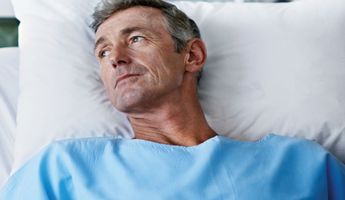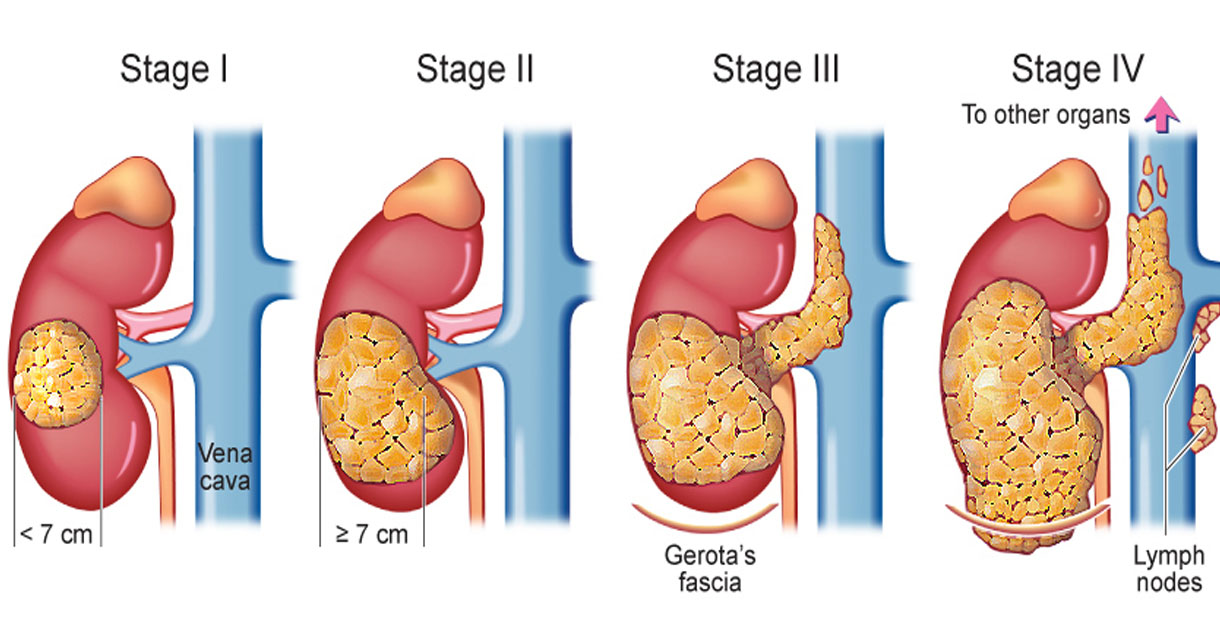Kidney Cancer Treatment in Munich
Search and Compare the Best Clinics and Doctors at the Lowest Prices for Kidney Cancer Treatment in Munich

Find the best clinics for Kidney Cancer Treatment in Munich
No pricing info available
Ukraine offers the best prices Worldwide
Price: $ 2,487
University Hospital of Munich (LMU), located in Professor Huber Platz, Munich, Germany offers patients Kidney Cancer Treatment procedures among its total of 223 available procedures, across 26 different specialties. Currently, there's no pricing information for Kidney Cancer Treatment procedures at University Hospital of Munich (LMU), as all prices are available on request only. There is currently a lack of information available on the specialists practicing at the Hospital, and they are not accredited by any recognized accreditations institutes
WHY US?
At Medijump, we're making medical easy. You can search, compare, discuss, and book your medical all in one place. We open the door to the best medical providers worldwide, saving you time and energy along the way, and it's all for FREE, no hidden fees, and no price markups guaranteed. So what are you waiting for?

Free

Best Price

Widest Selection

Risk-Free
What you need to know about Kidney Cancer Treatment in Munich
Treatment for kidney cancer depends on what stage the cancer is at, whether cancer has spread, your age, your overall health, and your personal preference. The most common treatment for this disease is surgery to remove part or all of the kidney. In advanced cases, treatment with a drug may also be used to treat kidney cancer.
What does a Kidney Cancer Treatment Procedure Involve?

There are two types of surgery to treat kidney cancer: surgery to remove the entire kidney (nephrectomy) and surgery to remove the part of the kidney that contains cancer (partial nephrectomy), both are performed under general anesthetic. For small tumors, your doctor may recommend cryoablation (treatment to freeze cancer cells to kill it) and radiofrequency ablation (treatment to burn cancer cells to kill it). If your kidney cancer is at an advanced stage, a drug may be used instead of surgery, such as immunotherapy (uses your own immune system to fight cancer cells), anti-angiogenic therapies (reduce the blood supply to the tumor to slow or stop the tumor’s growth), and targeted therapies (directly inhibit the growth of cancer).
How Long Should I Stay in Munich for a Kidney Cancer Treatment Procedure?
Your length of stay in Munich depends on which procedure you underwent. In general, you will need to stay in the hospital for 2 to 7 days and you need to plan to stay in the country for 7 to 14 additional days after surgery. If you only undergo therapy, your length of stay depends on how many cycles are needed for your specific condition.
What's the Recovery Time for Kidney Cancer Treatment Procedures in Munich?
The total recovery time until you can go back to your normal routine and perform strenuous activities or heavy lifting may take about 6 weeks, but you may be able to return to work within 3-4 weeks if your job is not physically demanding.
What sort of Aftercare is Required for Kidney Cancer Treatment Procedures in Munich?
Your surgeon will give you detailed instructions to help your recovery, which may include exercises, restrictions, wound care, and diet. You may need to attend regular checkups with your local doctor to monitor your condition. It is really important to eat well and get good nutrition during and after cancer treatment to avoid weight loss and to regain strength.
What's the Success Rate of Kidney Cancer Treatment Procedures in Munich?
The success rate for kidney cancer treatment depends largely on the stage of cancer and how early the treatment is received. The success rate can range from 69% to 93%. There are some side effects and risks that you should be aware of, such as infection, bleeding, damage to other organs, indigestion, hypertension, tiredness, diarrhea, infertility, rash, and shortness of breath.
Are there Alternatives to Kidney Cancer Treatment Procedures in Munich?
If you have a small tumor or you are too frail for treatment, your doctor may recommend ‘active surveillance,’ which means your tumor is closely watched to see if it grows.
What Should You Expect Before and After the Procedure
Kidney cancer is life-threatening, can spread to other organs, and cause painful symptoms. After successful treatment, the symptoms are relieved and you can get back to a normal life. Living with one kidney may sound frightening, but most people can live just fine and their quality of life is not affected.
Whilst the information presented here has been accurately sourced and verified by a medical professional for its accuracy, it is still advised to consult with your doctor before pursuing a medical treatment at one of the listed medical providers
No Time?
Tell us what you're looking for and we'll reachout to the top clinics all at once
Enquire Now

Popular Procedures in Munich
Prices Start From $2,487

Prices Start From $39

Prices Start From $2,487

Prices Start From $825

Recommended Medical Centers in Munich for Kidney Cancer Treatment

- Interpreter services
- Translation service
- Religious facilities
- Medical records transfer
- Medical travel insurance
- Health insurance coordination
- TV in the room
- Safe in the room
- Phone in the room
- Private rooms for patients available

- Interpreter services
- Translation service
- Religious facilities
- Medical records transfer
- Medical travel insurance
- Health insurance coordination
- TV in the room
- Safe in the room
- Phone in the room
- Private rooms for patients available

- Interpreter services
- Translation service
- Religious facilities
- Medical records transfer
- Medical travel insurance
- Health insurance coordination
- TV in the room
- Safe in the room
- Phone in the room
- Private rooms for patients available

- Interpreter services
- Translation service
- Religious facilities
- Medical records transfer
- Medical travel insurance
- Health insurance coordination
- TV in the room
- Safe in the room
- Phone in the room
- Private rooms for patients available
Kidney Cancer Treatment in and around Munich
About Munich
Munich is the largest city in Southern Germany and it is one of a few places on earth where traditional and modern sit side by side, with its royal palaces and high-tech cars. Known as the ‘city of art and beer,’ this city is famous for its annual beer festival known as Oktoberfest. What most people do not realize is that Munich is also one of the world’s most famous medical tourism destination. Thanks to the famous German education system that creates skilled specialists, as well as state-of-the-art medical centers that invest in the latest medical technology, medical tourism in this city is a booming business that continues to grow at a fast rate. International patients usually travel to the city for quality rather than the price.
Popular Parts of Munich
Munich boasts a beautiful historic center, amazing German food, large parks and gardens, and beer halls packed with welcoming people. Visitors can explore numerous historical buildings, such as the Church of St. Peter and Frauenkirche. These two buildings have been around for centuries and are located in Munich’s Old Town. One of the most popular attractions in the city is Alte Pinakothek, which is an important art museum that houses over 800 works from the 14th – 18th centuries from German masters. Those who want to have a picnic, hike, simply relax or even try surfing should visit the English Garden. Other popular places include Dachau Concentration Camp, Nymphenburg Palace, BMW Museum, and Deutsches Museum.
Transport in Munich
The international airport of Munich is Munich Airport, which is the second-busiest airport in Germany in terms of passenger traffic. It serves international flights from many cities around the world, including Dubai, Bangkok, and Atlanta. Munich has a comprehensive network of public transportation that will take visitors virtually anywhere around the city. The most common transit system is the U-Bahn, which is a fast and easy underground subway system. Buses, trams, and commuter trains are also available and each has a vast network. Taxis are easy to hail, reliable, and safe. However, they are a bit pricey and Uber operates in Munich.
Visas in Munich
As a member of the Schengen Area, Germany allows citizens of several countries, including Australia, New Zealand, the US, and Poland to enter and stay in the country without a visa for up to 90 days. Citizens of other countries not listed in the visa-free entry need to obtain a visa to visit the country. Always check the requirements for Germany Visa Application before applying.
Weather in Munich
From June to August is the summer, which is a popular time to enjoy outdoor activities as the temperatures hover around 24°C. On very hot days, the temperatures can reach 30°C. Autumn (September – October) and spring (March-May) has pleasant weather with mild temperatures. Winter can be very cold, with temperatures dropping as low as -10°C.
Additional Info
- Local Currency: Euro (EUR) is the official currency. 1 EUR is approx. 1.12 USD.
- Money & Payments: ATMs are easy to find. Credit cards are not widely accepted and tipping is common practice.
- Local Language: The official language is German. Many people, particularly in tourism areas, understand English to some extent.
- Local Culture and Religion: Christianity is the largest religion in the city, followed by Islam, Buddhism, Hinduism, and Judaism.
- Public Holidays: Munich celebrates numerous holidays, including New Year’s Day and Christmas Day. It also hosts several festivals throughout the year, such as Oktoberfest in October.
Popular Searches
- Plastic Surgery in Thailand
- Dental Implants in Thailand
- Hair Transplant in Thailand
- Breast Augmentation Thailand
- Gastric Sleeve in Thailand
- Gender Reassignment Surgery in Thailand
- Laser Hair Removal in Bangkok
- Botox in Bangkok
- Dermatology in Bangkok
- Breast Augmentation in Bangkok
- Coolsculpting in Bangkok
- Veneers in Turkey
- Hair Transplant in Turkey
- Rhinoplasty in Turkey
- Stem Cell Therapy in Mexico
- Rhinoplasty in Mexico
- Liposuction in Mexico
- Coolsculpting in Tijuana
- Rhinoplasty in Korea
- Scar Removal in Korea
- Gastric Sleeve in Turkey
- Bone Marrow Transplant in India
- Invisalign in Malaysia
- Plastic Surgery in the Dominican Republic
- Tummy Tuck in the Dominican Republic
- Plastic and Cosmetic Surgery in Poland
- Rhinoplasty in Poland
- Hair Implant in Poland
- Dental Implants in Poland
- IVF in Turkey
